Celebrating Christmas with Taiwan's Aborigines
The drive up the mountain is spectacular. Four-foot poinsettias line the highway, fully bloomed, forming a pristine gold and crimson guardrail against the mountain wall. On the ascent to the Rukai Christmas celebration in Taiwan, literally half a world away, the flowers make me feel oddly at home, as if this free-growing symbol of Christmas is more natural than the man-made icons to which I am so accustomed. Already the air is chilly, always fifteen or twenty degrees cooler in the mountains, and this night is perhaps the coldest of the year. A bit late-coming, I hike in to town, passed by aborigines in full garb toting bundles of blankets to keep warm. I have no idea what to expect of an aboriginal Christmas celebration, but whatever seed of a thought exists in my mind is nothing compared to the tree I will encounter.
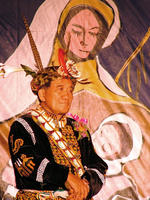 The school is remarkable even during the day, with its open windows viewing the mountains and the red-dirt track that has bred some of Taiwan's swiftest runners. Traditional carvings adorn the walls, just as in all corners of Outai village, with the interspersion of a few paintings by the more talented children. Tonight, though, spotlights shine down from the school's roof, and a huge stage with a professional sound-system pumps music across the crowds. Hundreds of people fill the temporary bleachers erected for the occasion. “How in the world did they drive a truckload of equipment up here?” I wonder, still surprised by the resourcefulness of the Rukai people. Lights hang from every vertical object in sight and stars adorn many of the rooftops. A manger scene with Mary, Joseph and baby Jesus serves as the backdrop for the event. In a country that is 98% Buddhist, aborigines converted by European missionaries in the 18th century have transformed the mountains into a haven of Christianity, recognizable, but still unique.
The school is remarkable even during the day, with its open windows viewing the mountains and the red-dirt track that has bred some of Taiwan's swiftest runners. Traditional carvings adorn the walls, just as in all corners of Outai village, with the interspersion of a few paintings by the more talented children. Tonight, though, spotlights shine down from the school's roof, and a huge stage with a professional sound-system pumps music across the crowds. Hundreds of people fill the temporary bleachers erected for the occasion. “How in the world did they drive a truckload of equipment up here?” I wonder, still surprised by the resourcefulness of the Rukai people. Lights hang from every vertical object in sight and stars adorn many of the rooftops. A manger scene with Mary, Joseph and baby Jesus serves as the backdrop for the event. In a country that is 98% Buddhist, aborigines converted by European missionaries in the 18th century have transformed the mountains into a haven of Christianity, recognizable, but still unique.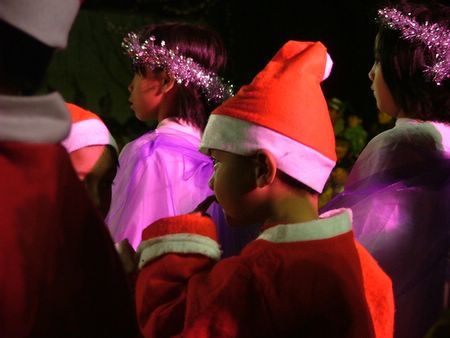
A 70-30% split exists between those dressed up in traditional ceremonial clothes of beads, boars teeth, and lilies, and the Christmas costume wearers, predominately santas and angels. The whole show is a continuation of the mixture of traditional with foreign. An Emcee in tribal garb will speak in Chinese, but the chiefs from all the various villages speak alternately Mandarin and Rukai. Songs like Jingle Bells and Joy to the World are balanced out with traditional hymns. Electric guitars and circle dances; on and on the melding continues.
 The celebration is a fitting depiction of the current state of the Rukai people. Few sit on the fence between tradition and change. Rather they have one hand in each pot. A few weeks earlier my wife and I watched the Bush-Kerry election results on satellite TV as our host strung together traditional beaded jewelry. Children learn basic English in school and in increasing numbers receive higher education. Yet at the same time, they are taught traditional dances and songs. Young men wear the eagle feather of the hunter in their hats. Carvers pass down their craft to a new generation. The old and new co-mingle.
The celebration is a fitting depiction of the current state of the Rukai people. Few sit on the fence between tradition and change. Rather they have one hand in each pot. A few weeks earlier my wife and I watched the Bush-Kerry election results on satellite TV as our host strung together traditional beaded jewelry. Children learn basic English in school and in increasing numbers receive higher education. Yet at the same time, they are taught traditional dances and songs. Young men wear the eagle feather of the hunter in their hats. Carvers pass down their craft to a new generation. The old and new co-mingle.Wisely, the Rukai embrace both worlds, as the fight against modernity is seldom won. The perks are evident, especially tonight. A people with a penchant for creating have used technology to their advantage. Chained lights lend the stone-hewn church an ethereal glow. Propane tanks heat slate slabs, making a savory surface for barbecuing wild boar. They slash, burn, plant, cultivate, and dry crops using ancient techniques, and prepare crops and afterwards, store them in a refrigerator. Trucks and motorcycles, hand made from scrap parts, rumble through the streets. Years ago such novelties may have been a curiosity to be resisted, but now they are a fact of the Rukai life.
Despite common modernization, differences exist between the tribespeople and their Chinese neighbors on the coastal plains. One of the most evident differences is in music. I am thrilled to hear the audience clapping on the two-four beats of the songs (whereas the Chinese are accustomed to 2/4 time and consequently clap on the 1-3 beat of 4/4 music, rendering dance virtually impossible). Traditional songs are of manhood, marriage, and the hunt, but Christmas hyms are easily incorporated, translated into the traditional dialect and set to familiar tunes. The Rukai sport spectacular singers as well, both in traditional and modern styles, so listening is a treat, especially to one honey-voiced tenor who, had he been born in another time and land, could have given Sinatra and other legendary crooners of Western renown a run for their money.
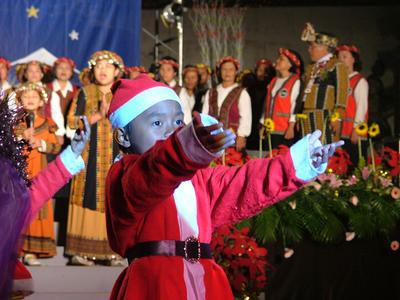 Various Rukai villages dot Taiwan's central mountain range and missionaries from different churches visited each, resulting in a denominationalism that strongly resembles American Christianity. The Baptist choir from one village sings, then the Methodist choir from another. One of the ensembles even sports choir robes, save for the chief, serving as director, wearing traditional clothes. The Catholics, fittingly, enact a drama centering around the Magnificat and the Virgin Birth. The emphasis is unity, however, reinforced by the popular Chinese CCM song, “In Jesus we are a family,” sung by all. And everyone walks away side by side, illuminated by the hundreds of glow-in-the-dark crucifixes offered as parting gifts.
Various Rukai villages dot Taiwan's central mountain range and missionaries from different churches visited each, resulting in a denominationalism that strongly resembles American Christianity. The Baptist choir from one village sings, then the Methodist choir from another. One of the ensembles even sports choir robes, save for the chief, serving as director, wearing traditional clothes. The Catholics, fittingly, enact a drama centering around the Magnificat and the Virgin Birth. The emphasis is unity, however, reinforced by the popular Chinese CCM song, “In Jesus we are a family,” sung by all. And everyone walks away side by side, illuminated by the hundreds of glow-in-the-dark crucifixes offered as parting gifts.The music eventually fades and the mountain silence descends over the village once again as people trickle to their homes and vehicles. A cloud-wrapped full moon looks down on the villagers. The moon is the keeper of the celebration, striding confidently across the sky in the same path as when ancestors first settled the mountains. It offers a silent testimony of Christmas, like the mountains and the poinsettas, just as it did centuries before the first missionaries arrived on the island. Suddenly, a world away, I realize why I feel at home.
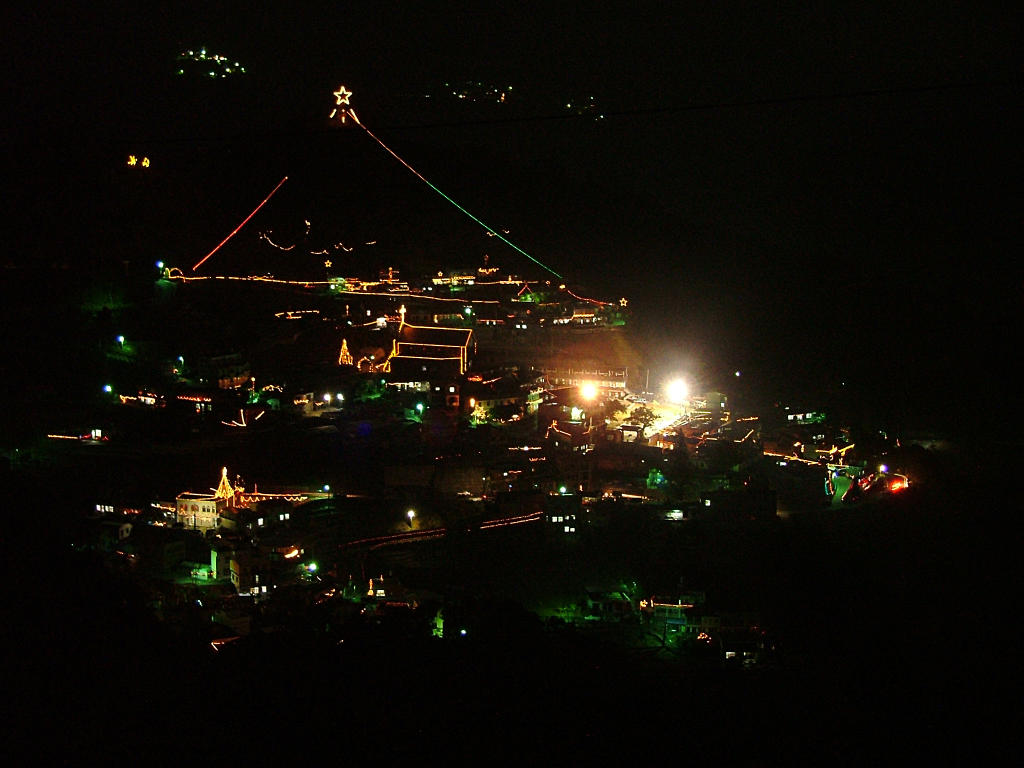
Additional Photos:
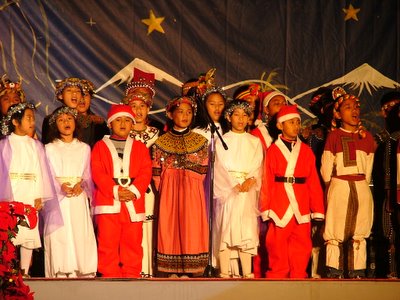 1
1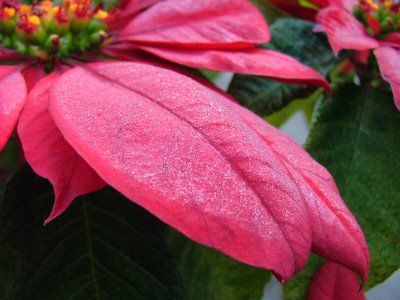
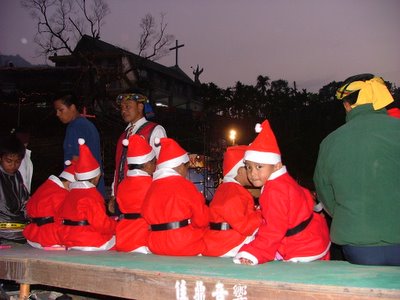
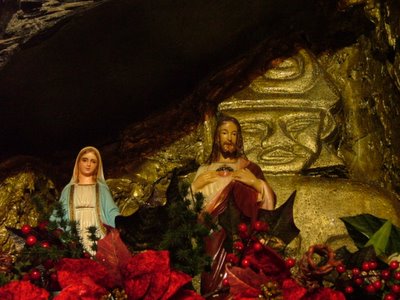
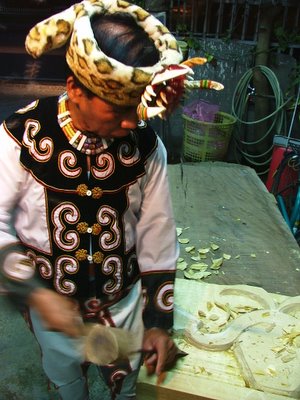
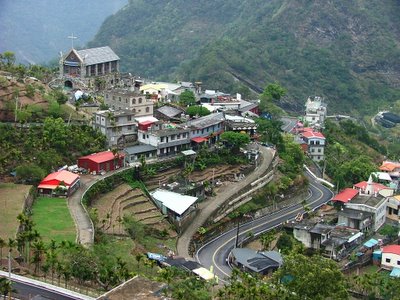
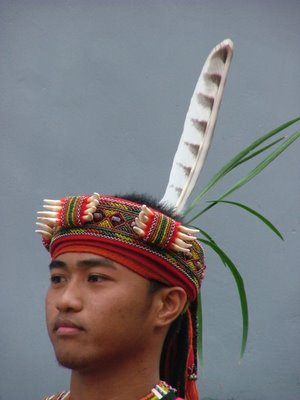
<< Home